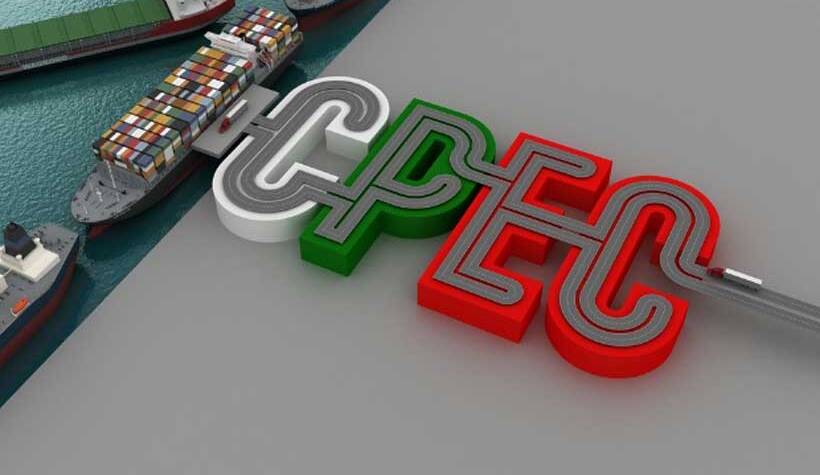Pakistan to accelerate CPEC phase 2 in next fiscal year
The 2024-25 budget plan focuses on launching the second phase of CPEC, emphasizing industrial cooperation, agriculture modernization, socioeconomic development, and scientific collaboration. Key projects include the ML-1 infrastructure project, priority development of four special economic zones, and an action plan to boost agriculture productivity. Science and technology cooperation will be enhanced through joint labs and technology transfer. Seventeen fast-track socioeconomic projects will be implemented, with further security measures and tourism promotion initiatives. Future energy and petroleum projects are also planned, with the next CPEC joint cooperation committee meeting set for FY25.
The annual plan for budget 2024-25 approved by the government envisages kick-starting implementation of the second phase of CPEC with a focus on industrial cooperation, agriculture modernisation, socioeconomic development, and scientific collaboration in addition to the ongoing projects in infrastructure and energy.
In infrastructure, Mainline-1 (ML-1) is a strategic project that will achieve significant milestone in 2024-25. The project, once implemented, is expected to considerably improve the logistics performance of the country. Moreover, projects in the mining sector are envisaged to be taken up in the years to come.
In Industrial Cooperation, out of the nine special economic zones (SEZs), four economic zones namely Rashakai SEZ, Allama Iqbal Industrial Zone, Dhabeji SEZ and Bostan SEZ have been placed on the priority list. Since necessary utilities are being provided to these zones with utmost priority, it is expected that several industrial units will start their production.
In pursuance of an action plan for agriculture cooperation, emphasis is drawn on enhancing the productivity of major crops, value addition in agriculture produce and export, reducing post-harvest waste and pest and disease control as well as human resource development. The development of agriculture mechanisation is also part of the plan to enhance efficiency and innovate the sector.
To promote cooperation in Science & Technology, the two sides have agreed to strengthen people-to-people exchanges, joint laboratories, science parks and technology transfer under the BRI Science, Technology & Innovation (STI) Action Plan.
In the socioeconomic sector, out of the 27 projects identified under poverty alleviation, health, education, vocational training, agriculture and water supply, 17 fast-track projects will be implemented in 2024-25. The scope and content of the remaining 10 priority projects have been mutually shared, and letters of exchange (LoEs) will be signed in the planned year.
Furthermore, collaboration in the security arena under CPEC will further be deepened by signing memorandums of understanding (MoUs) on various aspects of security. The overall aim is to provide fool-proof security — with a harmonic combination of man and technology to CPEC projects and beyond.
Future power sector projects will be considered in the CPEC framework to provide a stronger foundation for energy cooperation during the next stage. Petroleum-sector projects will be taken up under the ‘Development Plan of Oil & Gas for Pakistan’.
Tourism promotion as part of the long-term plan is another area of cooperation under the CPEC framework. Coastal tourism, eco-tourism in Gilgit-Baltistan, and integrated tourism zones in KP are among the areas in the tourism sector to be opened up for deliberation this year.
The second phase has been initiated with emphasis on industrialization/development of SEZs, agriculture modernization, sciences & information technology cooperation, and socio-economic development. The overall objective is to reap dividends of the investment made in the 1st phase (2015-20) that has created an enabling environment for investment in other sectors as existing voids in infrastructure and energy have been filled.
The next joint cooperation committee (JCC) meeting of CPEC is planned to be held in the third quarter of FY25. Several deliverables have been identified for the JCC by all stakeholders for the planned year.
The following is a summary of the targets and proposed action plan during 2024-25:
The power production 884-MW Sukki-Kinari HPP project is currently under construction and is expected to be completed in November 2024. It is expected that physical work on two hydropower projects, 1,124-MW Kohala and 700.7-MW Azad Pattan, and 300-MW Gwadar Coal Power Project would be started after the financial close. The ‘Development Plan of Oil & Gas Sector of Pakistan’ has been launched and subsequently, the plan will be implemented which mainly includes projects related to coal-to-gasification/liquid in Thar, North-South gas pipeline, etc. The aforementioned plan will act as a guiding document for the PSDP spending in the energy sector.
Chinese envoy Zhao Shiren urges students to uphold integrity and strengthen China-Pakistan ties
LAHORE:The Consul Generals from several countries and other distinguished guests attended …











